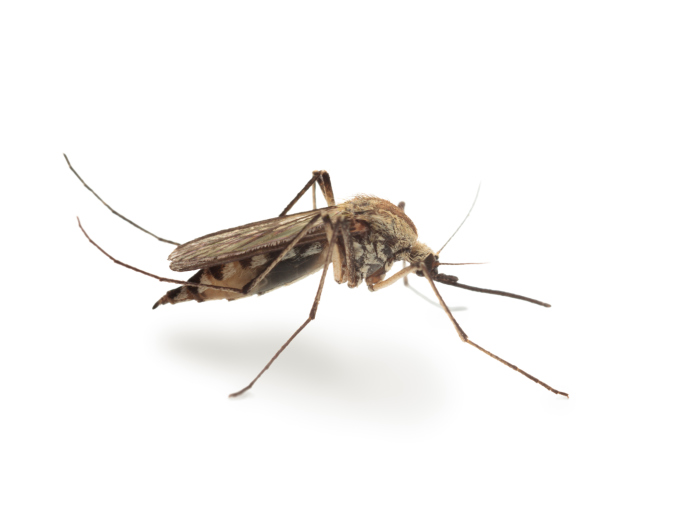As the weather gets nicer, it’s time to shake off the winter blues and get outside. Hiking, backyard BBQs and visiting neighbourhood parks are just a few of the activities I will enjoy with my family throughout the spring, summer and into the fall. Unfortunately, this is also the time of year that ticks and mosquitoes are out looking for their next meal – your blood. This is why it’s important to learn how to protect yourself and your family against mosquito and tick-borne illnesses.
West Nile virus (WNV) is one of many diseases that can be transmitted to people through the bite of an infected mosquito.  WNV became a reportable disease in Ontario in 2002 and since that time there have been over 1,100 cases reported in the province. Since the majority of people have no symptoms, or mild flu-like systems, this number likely represents the most severe cases. For less than 1% of those infected, the virus can cause severe symptoms such as inflammation of the brain or spinal cord, which can sometimes be fatal. People who are over age 50 are at higher risk for serious health effects, but WNV can cause complications for people of any age or health status. If you have concerns about your health, speak with your healthcare provider.
WNV became a reportable disease in Ontario in 2002 and since that time there have been over 1,100 cases reported in the province. Since the majority of people have no symptoms, or mild flu-like systems, this number likely represents the most severe cases. For less than 1% of those infected, the virus can cause severe symptoms such as inflammation of the brain or spinal cord, which can sometimes be fatal. People who are over age 50 are at higher risk for serious health effects, but WNV can cause complications for people of any age or health status. If you have concerns about your health, speak with your healthcare provider.
Lyme disease is transmitted to humans through the bite of an infected blacklegged tick.
A tick must be attached and actively feeding for at least 24 hours to transmit the bacteria that causes the disease. Ticks are usually found in wooded or brushy areas and do not fly, jump or move very quickly. After spending time outdoors, it’s a good idea to perform full-body tick checks on yourself, children and pets. Typical symptoms of Lyme disease include fever, headache and fatigue. Some people will get a bull’s-eye rash at the site of the tick bite. Symptoms may not appear for weeks after a bite. If you have been bitten by a tick and are concerned, contact your healthcare provider. If possible, keep the tick so it can be submitted to Public Health for identification.
Preventing mosquito and tick bites:
- Cover up by wearing light-coloured, long-sleeved shirts and pants
- Use a Health Canada approved mosquito repellent, such as one that contains DEET or Icaridin
To decrease the number of mosquitoes on your property, eliminate standing water where mosquitoes lay their eggs:
- Empty standing water from wheelbarrows, flowerpots, old tires and anywhere else water collects
- Frequently change water in pet dishes and bird baths
- If you have a pond, stock your pond with fish as they will eat mosquito larvae
- Ensure ponds have good circulation
- Keep eavestroughs clean and free of obstructions
- Keep window and door screens in good repair to help prevent mosquitoes from getting inside
If you have a catch basin on your property and would like to have it treated, please complete and submit the waiver form, or call 1-800-265-7293 ext. 4753.

